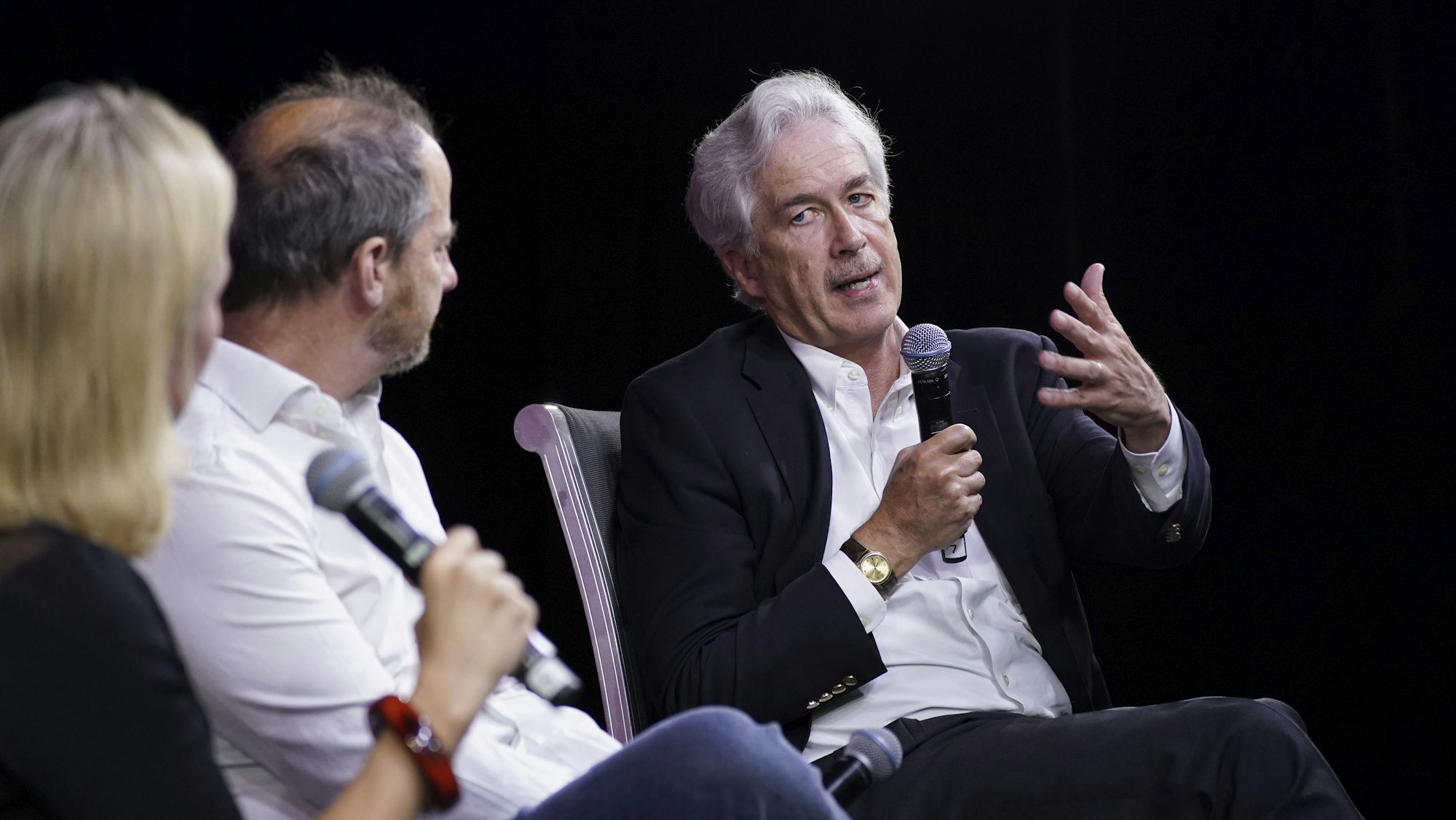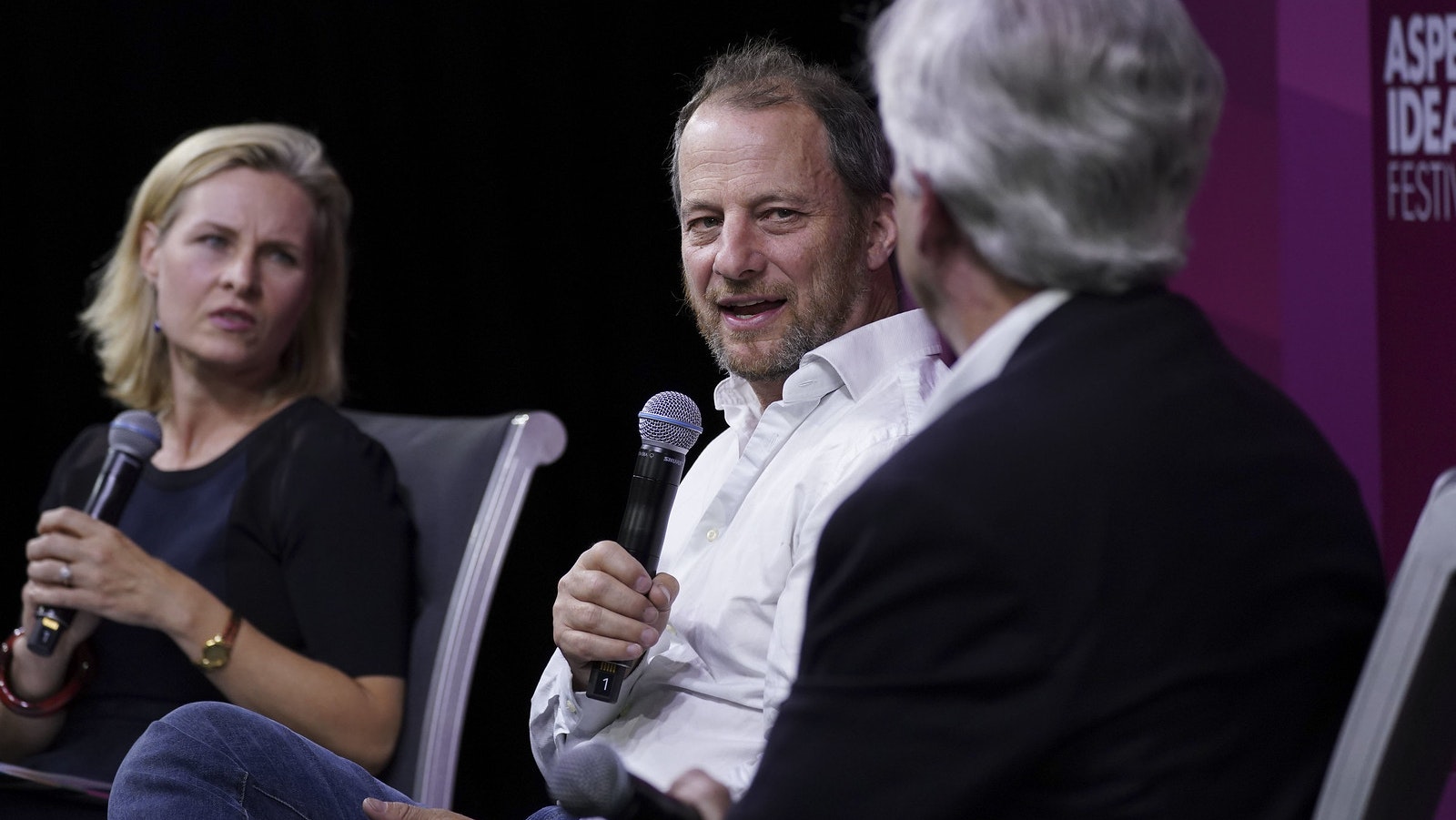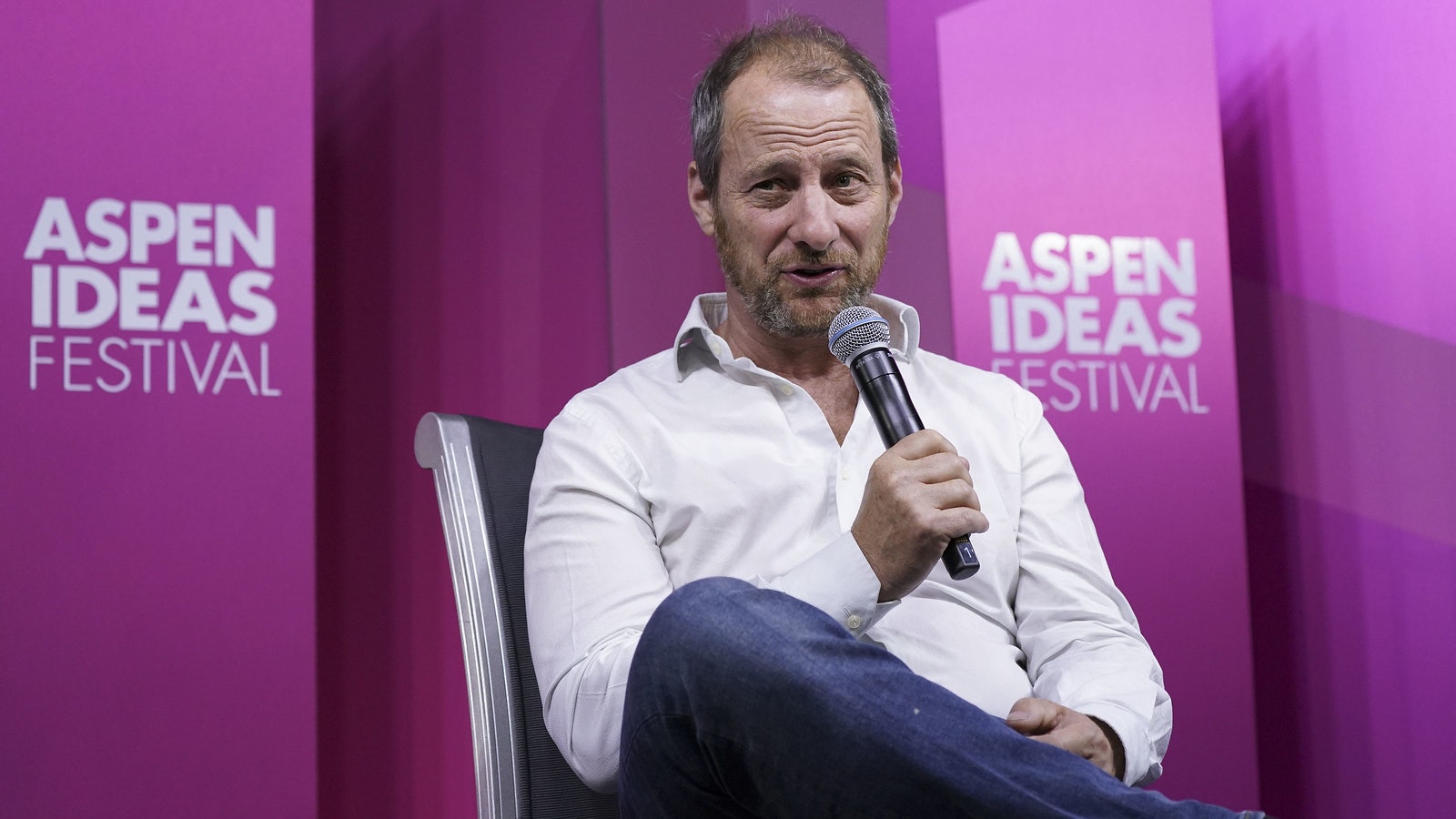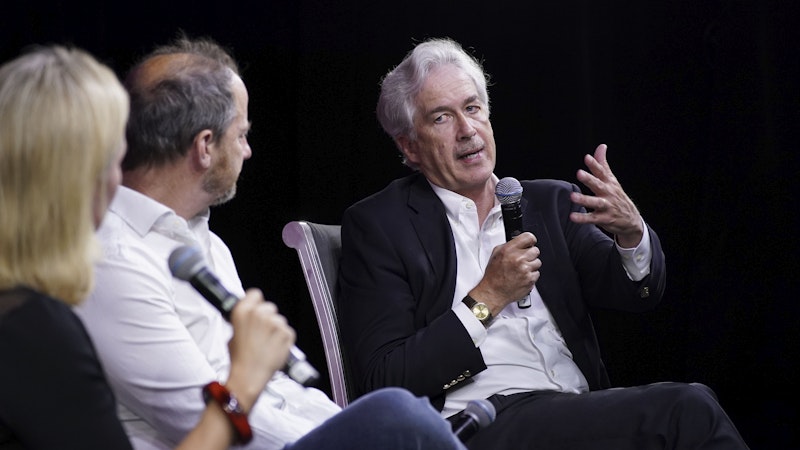
Is Diplomacy Dead?
Setup
The hard work of diplomacy, often mostly invisible, is arguably more important now than ever. In a shifting geopolitical landscape characterized by the emergence of Russia and China as significant rivals to the United States, new dangers threaten the American idea and an American-led world order. And yet, our diplomatic muscles have atrophied. Ambassador William Burns, president of the Carnegie Endowment for International Peace, served five presidents and ten secretaries of state in postings all over the word. The Atlantic’s George Packer, NPR’s Mary Louise Kelly, and Burns converse about the art of diplomacy, lessons from our shared past, and musings on diplomacy’s destiny in the emergent world order.
What makes a good diplomat?
“Perfect is rarely on the menu in diplomacy,” says William Burns, president of the Carnegie Endowment for International Peace and former career ambassador for the US Foreign Service. What you can do, he explains, is manage problems using the best of the available alternatives.
Big IdeaDiplomacy is always dissatisfying. It’s by definition about compromise, about starting with high demands and maximalist objectives, and then figuring out where you’re willing to settle, because you will have to settle unless you’re ready to go to warGeorge Packer
What good diplomats do, says George Packer, author of Our Man: Richard Holbrooke and the End of the American Century, is “get into the skin of the person on the other side of the table” in order to truly understand them. This allows the US to draw in alliances and mobilize coalitions of countries, though Burns explains he’s worried that “we’re corroding that tool of diplomacy and squandering that asset.” What’s more, adds Mary Louise Kelly of NPR, sending diplomats to solve our most pressing global issues “only has a shred of a chance of success if that person is seen to be carrying the word and carrying the weight of the president.”
Diplomacy in the Trump era
America is no longer an ascendant power, says George Packer. “We are now among many competitors with a declining relative power, with a jaded public, with an exhausted two decades of war that involved overreach and expense of resources and lives.” Now is exactly the time, he emphasizes, for the US to figure out how to regain influence in the world. Packer and William Burns discuss the impact the Trump administration is having on America’s foreign presence:
Big IdeaI still think it’s possible to renew American diplomacy, but we’re digging a pretty deep hole for ourselves today. My concern is we’ll eventually stop digging, but when we climb back to the top of the hole we’re gonna look out on a landscape that has hardened against our interests and, in some ways, against our values.William Burns
The biggest change to American diplomacy since 2016? In the past, Burns explains, a sense of enlightened self-interest guided our foreign policy — the sense that our self-interest as a country was best served by broadening the number of countries who shared those basic interests. “What’s happening today is turning that on its head,” he says. It’s now “a lot more about the self part than the enlightened part.”
Leading through example
“You get a lot farther through the power of our example, than you do through the power of our preaching,” William Burns says. “And right now our example is pretty lousy.” So what consequences do we suffer when the world no longer looks to follow America’s example? Burns and George Packer exchange their worries:
-
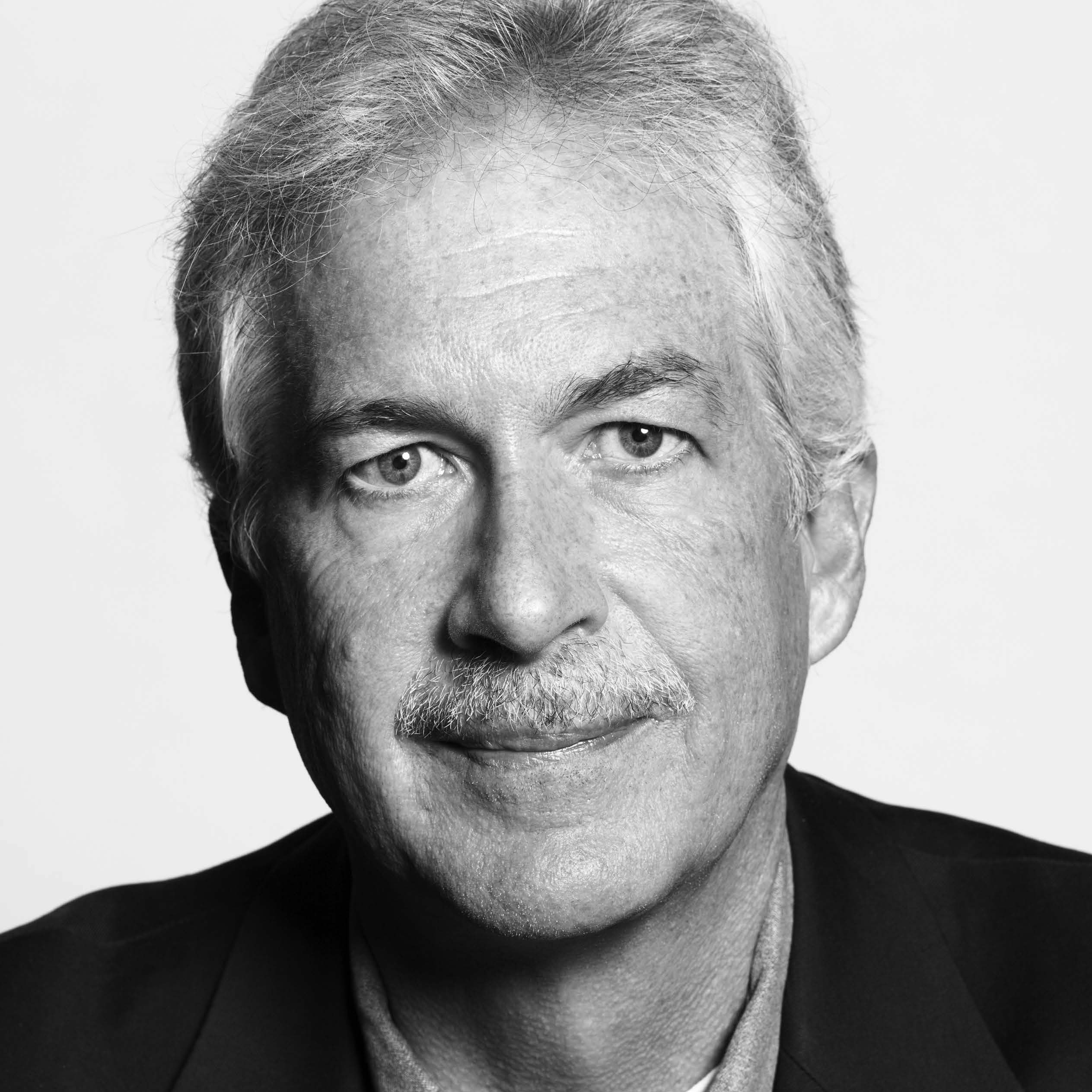
William Burns: What has appealed to lots of people overseas about our society — at our best, and we’re not always at our best — is the sense of possibility and mobility. And when we have such a hard time dealing with immigration challenges and create such a poisonous atmosphere around those kind of issues, when we indulge autocrats overseas...today all too often we do kinda check our values at the door. Those are the kind of things that are not only morally questionable, but do us a lot of practical damage, too, because the power of our example does matter.
-

George Packer: On a trip to Bosnia, a young journalist said to me, “When your president calls you the enemy of the people, how do you think that affects us when we’re trying to get our own heavy-handed authorities to allow us to function as journalists? We cannot point to the United States and say, this is the model you should follow.”
On playing the long and short game
Much of foreign policy comes down to human character, George Packer points out, and “Trump clearly has a soft spot for authoritarian-types.” The short-term worry, Packer and William Burns agree, is that the current administration is corroding US assets and alliances around the world.
Big IdeaIt takes a special kind of diplomacy to piss off the Canadians.William Burns
What about the long-game issues diplomats should be thinking about? “Climate change is the single biggest existential threat out there for human society, so I think it was a huge mistake to bail out of the Paris Climate treaty” says Burns. Another critical issue, he adds, is the question of how to manage the oftentimes adversarial relationships with power rivals like China and Russia — and “do it in a way that identifies some areas in which you could cooperate.”
Foreign policy experience is critical for 2020 hopefuls
Foreign policy hasn’t been at the forefront of the buzz around 2020 democratic candidates, George Packer says, but it shouldn’t be ignored considering our current position in the geopolitical world. Packer and William Burns offer their insight into foreign policy experience among past presidents and current hopefuls:
Learn More
Additional Information
Resources
Our Man: Richard Holbrooke and the End of the American Century
Is America Undergoing a Political Realignment?
The Back Channel: A Memoir of American Diplomacy and the Case for Its Renewal
We Led Successful Negotiations with Iran. Trump's Approach Isn't Working.
Explore More
World


For years, Yale undergraduate students have lined up to take a wildly popular course called Life Worth Living. Bucking the highly competitive tone you might expect at an Ivy L...

Global conflicts and health crises have put into stark relief deeply-ingrained gender roles in society. Yet the past years have also seen record-high numbers of women running...


The world seems to be moving and evolving faster than ever before, and democratic ideals are under threat in many countries around the globe. New York Times columnist and jour...

How is constitutional law being harnessed to address climate change? Ahead of Aspen Ideas: Climate, we caught up with Andrea Rodgers, Senior Attorney at Our Children's Trust,...


History has the power to teach us what to do in the present, but do we actually make good use of that tool? Many events in our recent past might suggest otherwise. American hi...


After millennia of human existence, we’re still figuring out and talking constantly about one of our most fundamental behaviors – sex. Despite the sexual revolution of the 60s...

Of course, Black history shouldn’t just be a month-long nod on our yearly calendar — it is inextricable from American history and fundamental to the very soul of our nation an...


Teenagers and young adults today are dealing with challenges their parents never experienced and couldn’t have prepared for. Nobody has a map and the road to resolution can be...

The unflinching humanity and morality that Martin Luther King, Jr. embodied is part of what makes his legacy so lasting. In addition to his preeminent civil rights work, he sp...

Whether you love setting New Year’s resolutions or ignore them entirely, there’s still a certain mix of nostalgia and excitement over the ending of one year and the possibilit...


Living a happy life isn’t as simple as having a smile on your face all the time. We often think that our negative emotions should be minimized and repressed, but acknowledging...


The human capacity for empathy allows us to communicate, collaborate and understand each other. But we all know empathy isn’t always easy, and we can feel worn down by the eff...


The stories we hear about migrants trying to escape difficult circumstances tend to focus on hardship, conflict, statistics and policy. We rarely get a deep look at any of the...


When Duke divinity school professor Kate Bowler wrote her best-selling memoir, “Everything Happens for a Reason (and Other Lies I’ve Loved),” she was grappling with the conseq...


For adults, the pressure to drink at social engagements, work events, restaurants or almost anywhere outside the home can feel constant. Recent research has found that “no amo...


In today’s world, we tend to switch jobs more frequently than previous generations, and are more likely to have multiple jobs. Side gigs where we express passions or find mean...


Most Americans today would agree that the dream of supporting a family and living a good life on one full time salary is not available to vast numbers of people. Wages have no...


Climate change catastrophes are already happening with increasing regularity, and it’s clear we need to take action. The Biden administration has set a target of zero carbon e...

Finding ways to ground ourselves on a planet too often in turmoil can foster the resilience we need to function at our best. By maintaining close personal ties, learning new s...

Philosophers throughout history have debated what it means to live a good life, and it remains an ongoing and unresolved question. Deep personal relationships, fulfilling work...


